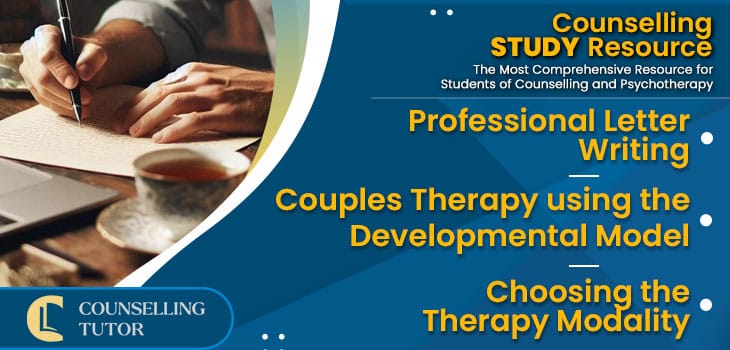See Counselling Skills Used in Real Sessions by Qualified Therapist
Real Sessions – Real Presentations – Real Skills
Gain the competence and confidence to use counselling techniques effectively!

In Episode 328 of the Counselling Tutor Podcast, your hosts Rory Lees-Oakes and Ken Kelly take us through this week’s three topics:
Professional Letter Writing
In this section, Rory and Ken explore the topic of professional letter writing. Writing letters to other professionals is an essential skill for counsellors, particularly when you need to communicate about your clients.
Some key points from this section include:

Real Sessions – Real Presentations – Real Skills
Gain the competence and confidence to use counselling techniques effectively!
In ‘Practice Matters’, Rory speaks with Claire Ratcliffe, who shares her insights on couples therapy using the developmental model.
Key takeaways include:

On-demand access to a rich lecture library covering theory, skills, and professional development for counselling students—Mapped to the UK awarding body criteria
“The Student Library has been BRILLIANT, I can’t recommend it enough!
It has been a lifeline in helping me prepare for practice and my first clients. If you’re considering it, go-for-it, it’s absolutely worth it!”
Kelly – Graduated and now in practice.
In ‘Student Services’, Rory and Ken discuss how to choose the therapy modality that suits you best. As a counsellor, finding the right modality for your practice is essential.
Some main points for this section:
Professional Letter Writing

Get on-demand Certified CPD that is implementable in your practice
